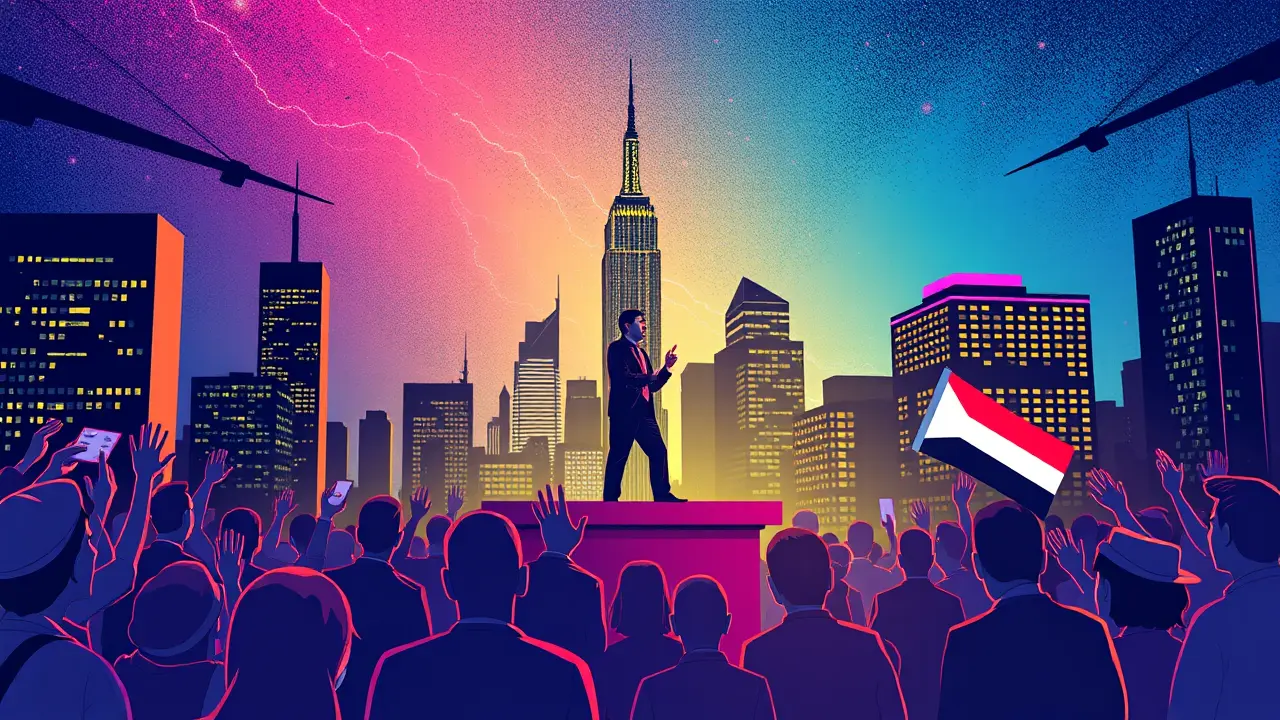
PoliticselectionsPresidential Elections
Zohran Mamdani's NYC Mayoral Victory Resonates Nationally.
MA
1 month ago7 min read8 comments
The political landscape of American urban politics shifted decisively on Tuesday night as Zohran Mamdani, a democratic socialist state assemblyman, captured New York City's mayoralty in a stunning victory that reverberated far beyond the five boroughs. Defeating both the scandal-tarred former Governor Andrew Cuomo and Guardian Angels founder Curtis Sliwa, Mamdani didn't just win an election—he shattered historical barriers, becoming the first Muslim and first South Asian mayor in the city's 400-year history.This wasn't merely a local race; it was a national proving ground for a new progressive playbook, one that could redefine Democratic strategy heading toward the 2028 presidential primaries. Watching the returns at the Brooklyn Paramount Theater felt like witnessing a political revolution in real time, the energy crackling with the same insurgent fervor that characterized Bernie Sanders' presidential bids, yet refined for municipal governance.Mamdani's campaign operated like a precision machine, expertly leveraging digital organizing and grassroots energy to build a coalition that stretched from housing activists to young voters disillusioned by traditional Democratic politics. His core promises—free buses, universal childcare, and a rent freeze—weren't just policy positions but moral declarations that resonated deeply in a city grappling with affordability crises and systemic inequality.What made this victory particularly remarkable was how Mamdani turned Cuomo's Islamophobic attacks into fuel for his movement. Rather than retreating from his identity, Mamdani leaned into it, his longstanding advocacy for Palestinian rights becoming not a liability but a testament to his authenticity for a generation of voters who prioritize moral consistency above all else.The campaign's internal polling showed Cuomo's attempts to weaponize Mamdani's background backfiring spectacularly in diverse neighborhoods from Jackson Heights to the Bronx, where traditional Democratic allegiances fractured in favor of Mamdani's unapologetic progressivism. This represents a fundamental realignment in urban politics—the emerging electoral power of Muslim and South Asian communities, groups that national Democrats have often overlooked in their binary racial framing.Mamdani's win signals that the future of the Democratic coalition depends on recognizing these evolving demographics, particularly as these communities grow in political influence in swing states like Michigan and Pennsylvania. The campaign's field operation proved equally transformative, deploying thousands of volunteers in a ground game that recalled Obama's 2008 organization but with digital sophistication that allowed Mamdani to bypass traditional media gatekeepers.His team built what one advisor called 'an organic messaging ecosystem'—TikTok explainers about rent regulation, Instagram Lives with housing organizers, Twitter threads dissecting the city budget—that made complex policy accessible while cultivating genuine connection. This digital-native approach helped Mamdani achieve something rare in modern politics: he increased turnout among voters under 30 while simultaneously making significant inroads with older Black and Latino voters who had initially been skeptical of his democratic socialist label.
#featured
#Zohran Mamdani
#New York City mayoral election
#progressive politics
#Muslim representation
#South Asian leader
#Andrew Cuomo
#Democratic coalition
Stay Informed. Act Smarter.
Get weekly highlights, major headlines, and expert insights — then put your knowledge to work in our live prediction markets.
Related News
Comments
Loading comments...
© 2025 Outpoll Service LTD. All rights reserved.